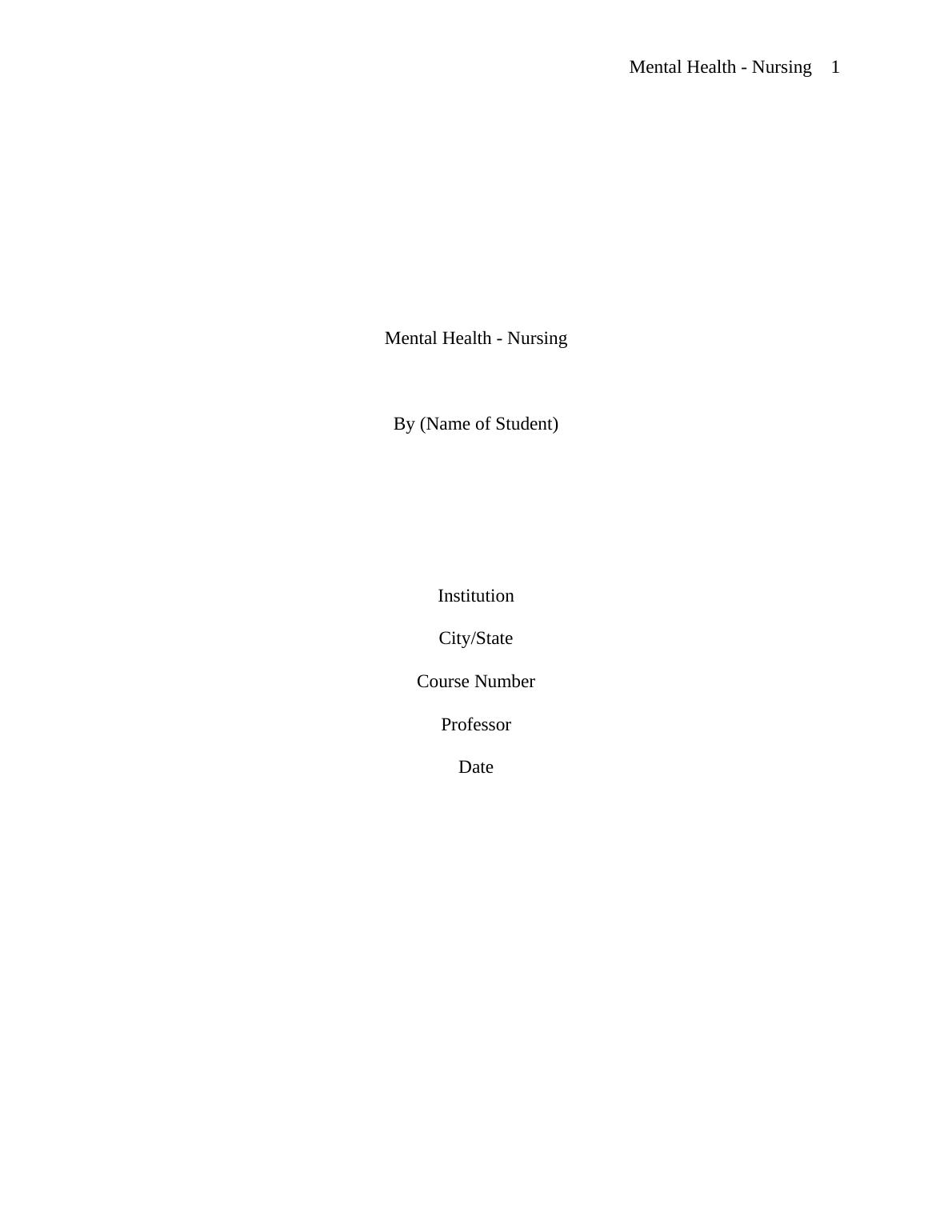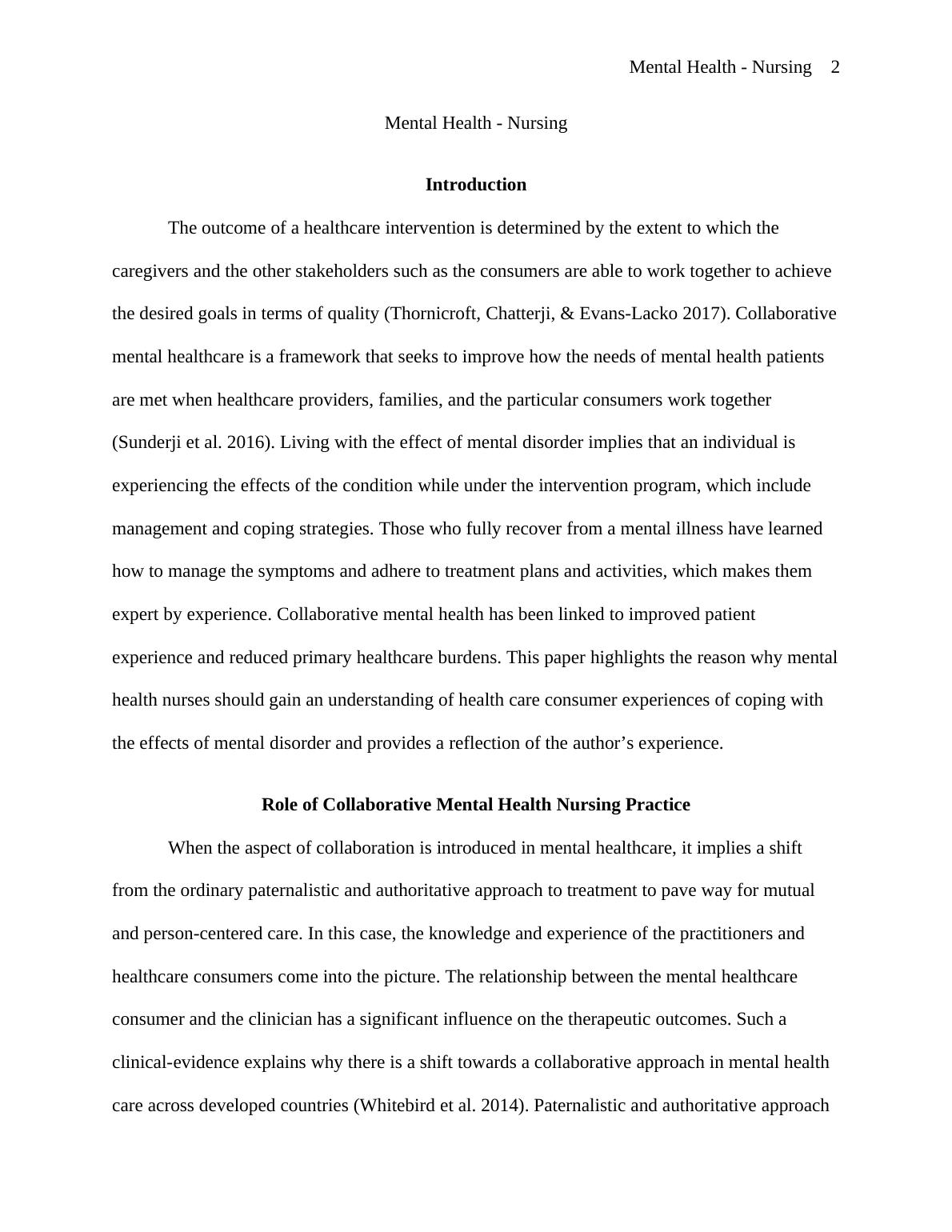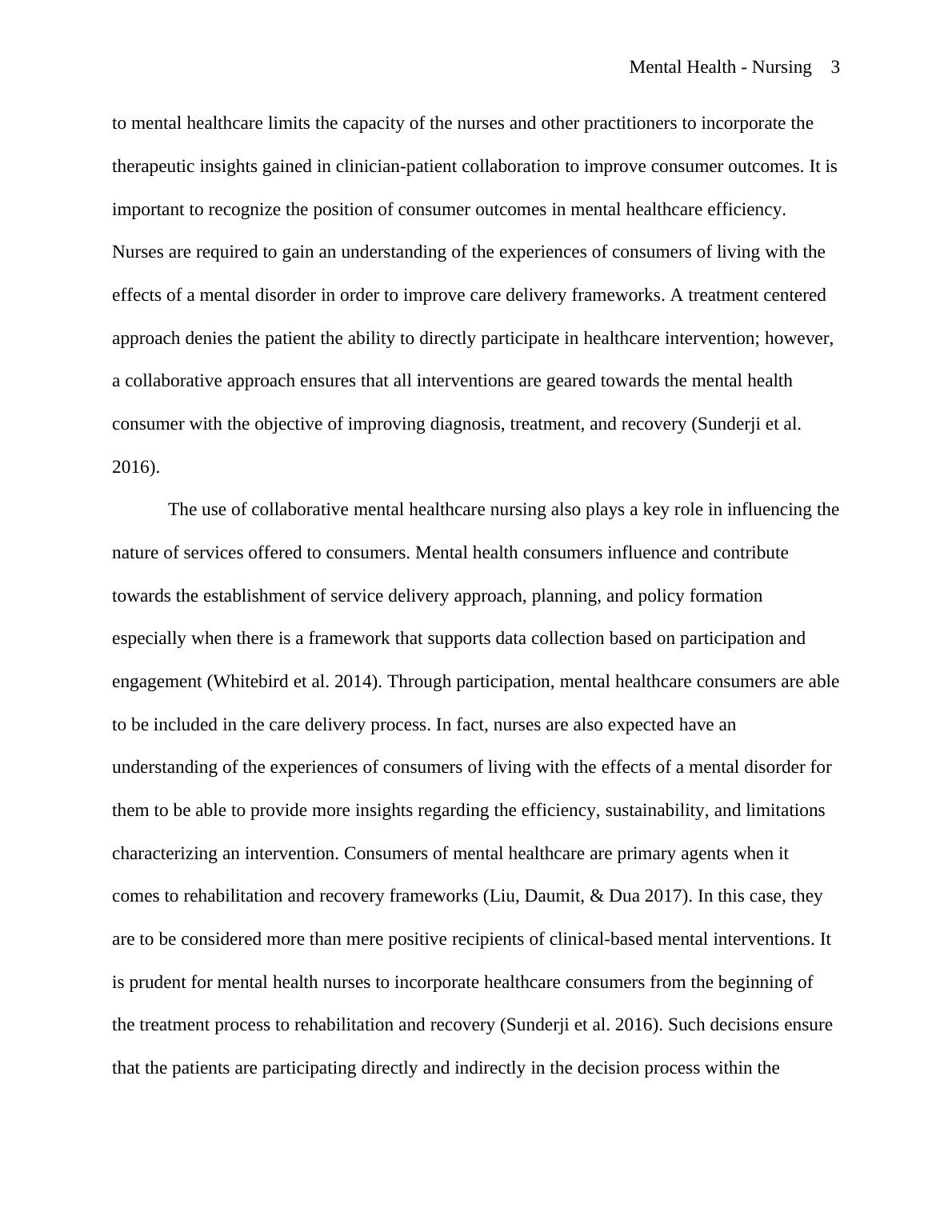Mental Health Nursing Assesment Report
This assignment requires students to introduce the topic of collaborative mental health nursing practice, define key terms, and discuss the importance of understanding the experiences of healthcare consumers with mental disorders. It also requires students to identify an aspect of their own nursing practice that requires development for collaborative work with mental health consumers and discuss how to develop this aspect.
Added on 2022-09-17
Mental Health Nursing Assesment Report
This assignment requires students to introduce the topic of collaborative mental health nursing practice, define key terms, and discuss the importance of understanding the experiences of healthcare consumers with mental disorders. It also requires students to identify an aspect of their own nursing practice that requires development for collaborative work with mental health consumers and discuss how to develop this aspect.
Added on 2022-09-17
End of preview
Want to access all the pages? Upload your documents or become a member.



